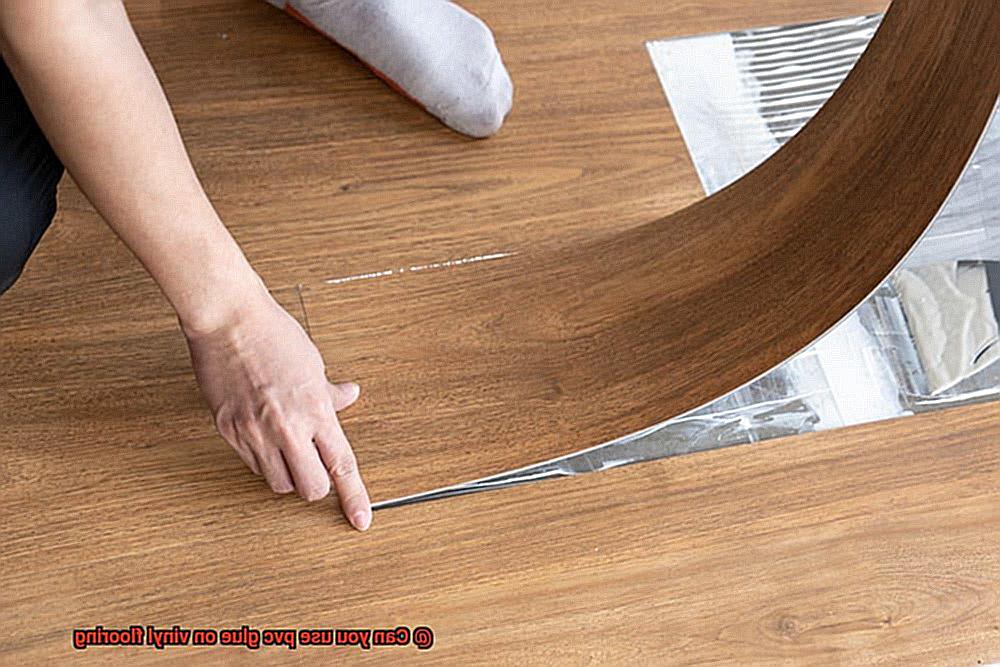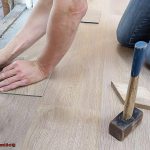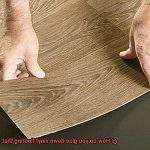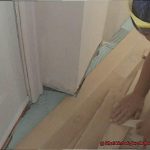Are you looking to give your home a fresh new look with vinyl flooring? It’s an excellent choice for its durability, versatility, and easy maintenance. However, before you start the installation process, it’s essential to know which adhesive is suitable for your vinyl floors.
Many homeowners wonder if PVC glue can be used on vinyl flooring. If you’re one of them, don’t worry; we’ve got you covered. In this blog post, we’ll delve into the nitty-gritty details of whether PVC glue is a viable option for your vinyl floors.
Choosing the right adhesive is crucial for ensuring a smooth and successful installation process. Using the wrong type of glue can not only ruin your flooring but also cause unnecessary frustration and additional expenses. While PVC adhesive is commonly used for various applications, it may not always be the best choice for vinyl flooring.
We understand how overwhelming it can be to navigate through all the options available in the market. That’s why we’ve conducted thorough research to provide you with all the information you need about using PVC glue on vinyl flooring. Additionally, we’ll also discuss other adhesives that are suitable for vinyl floors so that you can make an informed decision.
So, let’s find out now.
What is PVC Glue?
Contents
Well, PVC glue, also called PVC cement, has become a popular adhesive for PVC pipes and fittings. It’s made up of a solvent and a resin that work together to create a solid bond between two PVC surfaces. The solvent softens the surface of the PVC material, allowing the resin to penetrate and bond with the material. Once the solvent evaporates, the resin hardens, creating a durable bond between the two surfaces.
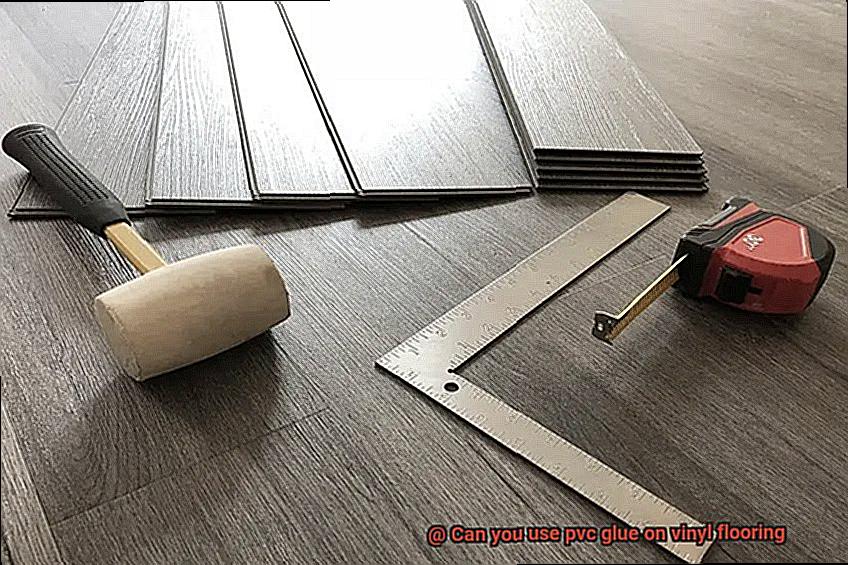
It is essential to note that all PVC glues are not created equally. Some types of PVC glue are designed for specific PVC materials such as pipes or fittings; others are tailored for specific applications such as underground or high-pressure piping systems. Therefore, it’s important to choose the right PVC glue for your specific needs.
When it comes to vinyl flooring installation, however, it’s essential to choose a glue specifically designed for vinyl materials. Using the wrong type of adhesive can result in a weak bond or damage to the flooring material. While some people may opt for PVC glue when installing vinyl flooring, it’s not always the best option.
Vinyl flooring is best installed with a peel-and-stick method or pressure-sensitive adhesive specifically formulated for vinyl flooring. These adhesives provide strong bonding without requiring PVC glue. In fact, using PVC glue on vinyl flooring could void the manufacturer’s warranty. Therefore, it’s essential to follow the manufacturer’s recommendation when selecting an adhesive for your vinyl flooring installation.
If you’re installing vinyl flooring in an area with high foot traffic or heavy furniture, you may need a stronger adhesive to ensure that the flooring stays in place. In such cases, you should choose a PVC glue specifically designed for use with vinyl materials.
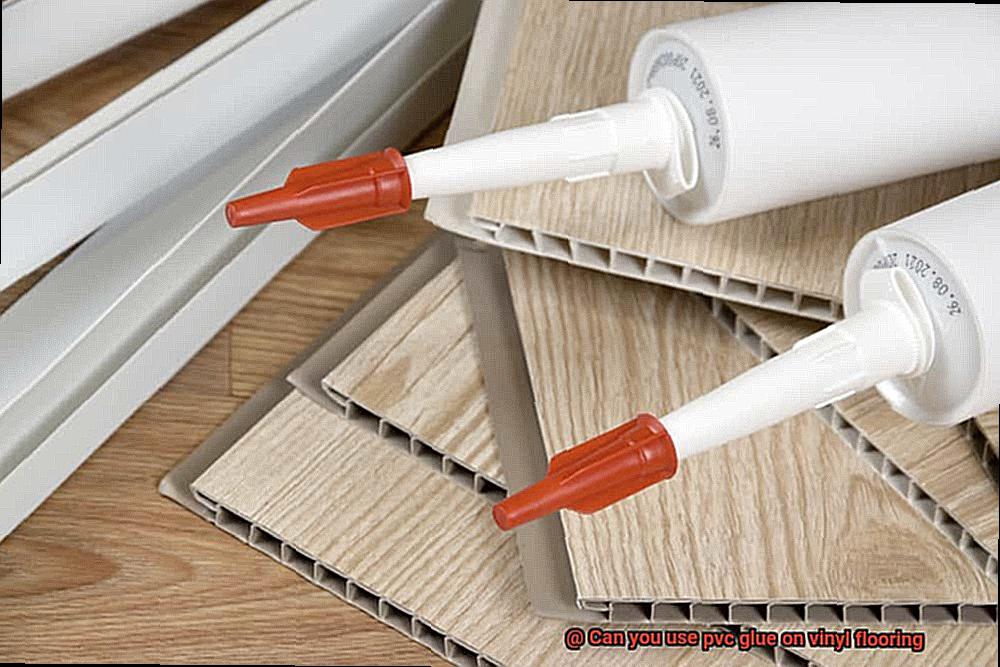
Is PVC Glue Necessary for Vinyl Flooring?
It’s a common question, and the answer is not a straightforward one. Let’s delve into the details.
Firstly, if you are installing floating vinyl plank flooring, then no, PVC glue is not necessary. These floors interlock with each other, eliminating the need for any adhesive. However, sheet vinyl flooring or glue-down vinyl plank flooring installations may require the use of PVC glue to ensure a secure and long-lasting result.
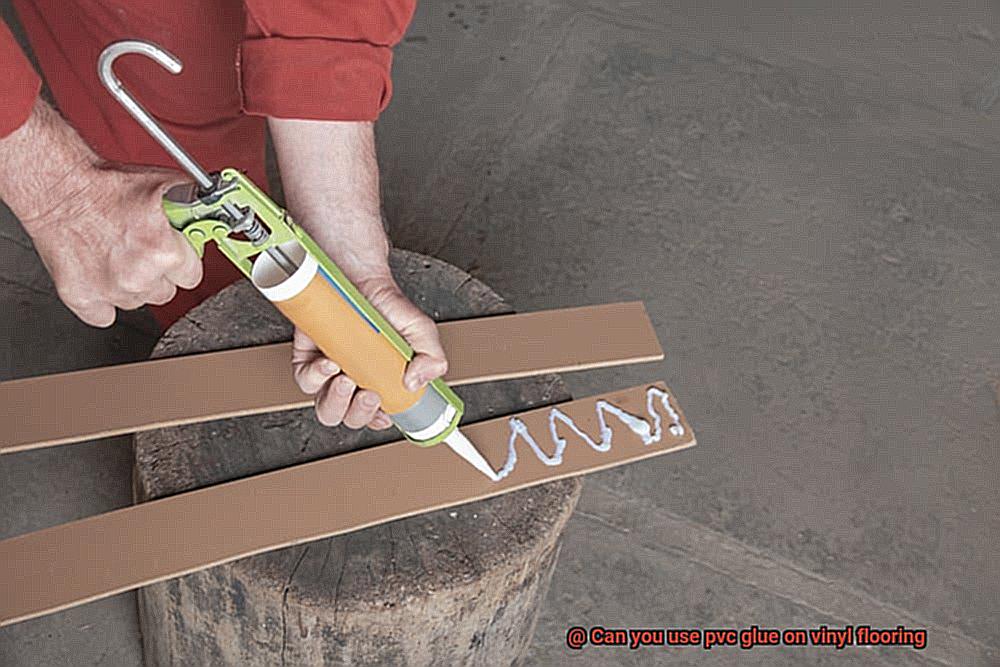
It’s crucial to note that not all PVC glues are suitable for all types of vinyl flooring. Before using any adhesive, always check the manufacturer’s instructions to ensure it’s compatible with your specific vinyl flooring product. Using an incompatible adhesive can lead to a failed installation or even damage to the flooring – we don’t want that.
In addition to using the correct adhesive, proper surface preparation is essential when using PVC glue for vinyl flooring installation. The subfloor must be clean, dry, and free of any debris or contaminants that could affect the adhesion of the glue. In some cases, a primer may also be recommended to improve adhesion.
Overall, while PVC glue may not be necessary for all types of vinyl flooring installations, it can provide added security and durability in certain cases. Therefore, carefully consider your specific circumstances before proceeding with your installation project.
What Adhesives are Better Suited for Vinyl Flooring?
When it comes to vinyl flooring installation, choosing the right adhesive is crucial for a long-lasting and durable result. While PVC glue may appear as a viable option, it is not recommended for use on vinyl flooring. So, what types of adhesives are better suited for vinyl flooring?
One of the most commonly used adhesives for vinyl flooring is pressure-sensitive adhesive (PSA). PSA is easy to apply and provides a strong bond between the vinyl flooring and the subfloor. It is also resilient to moisture and can be used in high-traffic areas. With PSA, you can achieve a flawless installation with ease.
Another option for vinyl flooring installation is a multi-purpose adhesive. This type of adhesive can be used on various types of flooring, including vinyl, and provides a robust and durable bond. Although multi-purpose adhesives have a longer drying time than PSA, they are still easy to apply with a trowel or roller. With multi-purpose adhesive, you can install multiple types of flooring with confidence.
For those environmentally conscious individuals, water-based adhesives are also available. These adhesives are low in volatile organic compounds (VOCs) and have a low odor. They are also easy to clean up with water and provide a strong bond between the vinyl flooring and subfloor. If you’re looking for an eco-friendly adhesive option, water-based adhesive is an excellent choice.
In addition to these types of adhesives, it’s crucial to choose an adhesive that is specifically designed for use with vinyl flooring. This ensures compatibility with the material and guarantees a strong and long-lasting bond. Therefore, carefully read the label before purchasing an adhesive.
When Might PVC Glue be Necessary on Vinyl Flooring?
Well, the answer is not straightforward, as it depends on several factors. However, PVC glue may be necessary in certain situations to ensure that your vinyl flooring installation is flawless and lasts for years to come.
For instance, when installing luxury vinyl tiles or planks over an uneven subfloor, using PVC glue can help fill any gaps and create a smooth surface for the vinyl flooring to adhere to. This will provide a strong foundation for your vinyl flooring, preventing it from shifting, cracking or warping over time.
Another scenario where PVC glue may be necessary is when installing vinyl flooring in high-traffic areas or commercial settings. These environments require a stronger bond to ensure that the vinyl flooring stays in place and can withstand heavy foot traffic. PVC glue provides this added strength and durability that is crucial in such settings.
However, it’s important to note that not all vinyl flooring products need the use of PVC glue. Some products come with a self-adhesive backing that eliminates the need for additional adhesive. Therefore, always check the manufacturer’s instructions and recommendations before choosing an adhesive.
Ultimately, whether or not PVC glue is necessary for your vinyl flooring installation depends on several factors, including the type of subfloor, location of installation, and product specifications. To make an informed decision about which adhesive to use, consulting with a professional installer or manufacturer can be helpful.
Potential Risks of Using PVC Glue on Vinyl Flooring
Vinyl flooring is an excellent choice for those looking for a low-maintenance, sturdy option to spruce up their home. However, before you start installing your new vinyl flooring, it’s essential to understand the potential risks of using PVC glue.
One of the most significant risks is the possibility of discoloration or staining on your beautiful vinyl flooring. This can occur if the glue finds its way through the seams or edges of the vinyl and leaves a visible mark. No one wants to see their floor marred by unsightly stains, which could lead to costly repairs or replacements.
Another risk is that the PVC glue may not adhere to the vinyl flooring properly. This could cause gaps or lifting in the material, making it problematic for high-traffic areas or where heavy furniture is placed on top of the flooring. You don’t want your newly installed floor to start lifting or cracking shortly after installation.
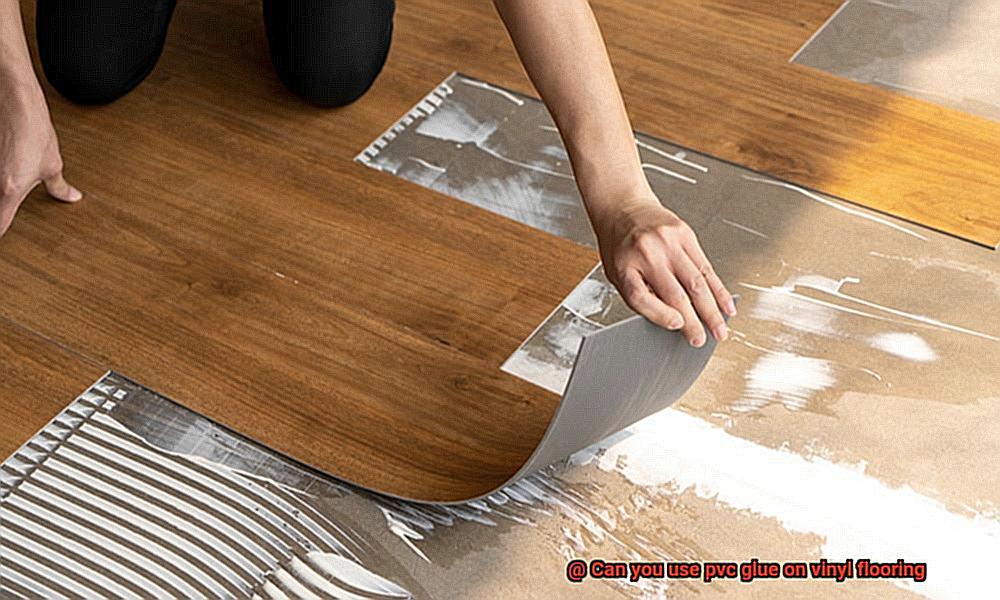
Using PVC glue on vinyl flooring could also void any warranties or guarantees that come with the flooring product. Manufacturers often have specific guidelines for installation and recommended adhesives, so deviating from these guidelines could result in a loss of coverage for any future repairs or replacements.
Furthermore, it’s important to note that PVC glue can release harmful fumes during application. Therefore, it’s best to follow proper ventilation and safety protocols when using this type of adhesive, especially in enclosed spaces or areas with poor ventilation.
Installation Instructions and Warranty Information
It may seem tedious to read through all the guidelines, but trust me, it can save you from headaches and costly mistakes in the long run.
Most vinyl flooring products come with specific installation instructions that must be followed to ensure a successful installation. These instructions may include details on subfloor preparation, adhesive application, and acclimation periods. Skipping any of these steps could lead to unsightly stains, lifting, or even complete failure of the flooring installation.
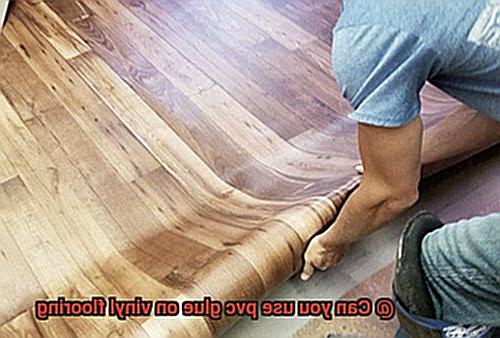
Moreover, many manufacturers offer warranties on their products, which may be voided if the product is not installed according to their guidelines. This means that if you encounter any problems with your vinyl flooring down the line, you may not be able to rely on the manufacturer’s warranty for assistance if you did not follow their installation instructions.
One common question that arises in relation to vinyl flooring installation is whether PVC glue can be used on vinyl flooring. The answer to this question depends on the type of vinyl flooring being installed and the specific adhesive being used. Luxury vinyl tiles (LVT) and luxury vinyl planks (LVP) typically do not require glue for installation and using PVC glue is not recommended. On the other hand, sheet vinyl typically requires glue for installation; however, using an adhesive specifically formulated for use with vinyl flooring is crucial.
To ensure a smooth and successful installation process, it is always best to follow the manufacturer’s instructions when it comes to vinyl flooring installation and adhesive selection. Doing so will help prevent any potential issues down the line and keep your warranty valid. Trust me; it’s worth taking the time to read through those instructions.
KKKpOpWfbCk” >
Conclusion
To sum it up, the adhesive you choose for your vinyl flooring installation can make or break your project. While PVC glue may seem like a tempting option, it’s not always the best choice for vinyl flooring. Opting for pressure-sensitive adhesive (PSA), multi-purpose adhesive, or water-based adhesives will give you better results.
It’s crucial to keep in mind that using PVC glue on vinyl flooring can lead to potential issues such as discoloration, improper adhesion, and voiding of warranties. Therefore, always follow the manufacturer’s instructions when selecting an adhesive and installing your vinyl flooring.
When deciding whether or not to use PVC glue on your vinyl flooring installation, consider factors such as subfloor type, location of installation and product specifications. Seeking advice from a professional installer or manufacturer can be beneficial in making an informed decision about which adhesive to use.
In conclusion, taking the time to read through the installation instructions and selecting the right adhesive is essential for preventing problems down the line and keeping your warranty valid.

